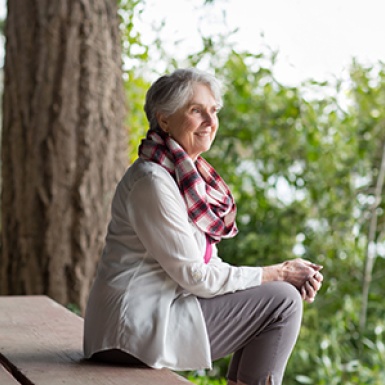Forming Your “Circle of Help”

Sign up and receive information on the latest news and updates.
Never go it alone. The best way to stand up to Alzheimer’s is to gang up on it.
The best way to defeat Alzheimer’s is to come together and gang up on the disease. If you or your spouse have been diagnosed with Alzheimer’s, please know that you are not alone. Right now, thousands of Alzheimer’s researchers, doctors, nurses, caregivers, support groups, and long-term care facilities are fighting for you on many fronts.
One of the most important fronts, of course, is the home front. My new book, Mike & Me, is one of several new books to chronicle the changing face of home care among Alzheimer’s couples and caregivers. Together, we are learning how the astonishing power of love, patience, compassion, and stay-at-home care can be mobilized by virtually every couple to help Alzheimer’s patients defy the old statistics and live a longer, fuller life.
My Husband and I Made A Deal
Early in my husband Mike’s 10-year journey with Alzheimer’s, we made a mutual commitment: As long as it was safe for him and me, Mike and I would live together in our home and make the Alzheimer’s journey together. Our goal was to keep Mike’s life as normal as possible for as long as possible, and that would entail staying in our home and community. It turned out that keeping that commitment to Mike was only possible because of a circle of friends and family who gradually formed around us and helped us every step of the way.
Looking back, I now realize that one of the most important things Alzheimer’s couples must learn in the early going is to simply reach out for help from friends and family. That probably sounds too obvious to mention, but you would be surprised to learn how many Alzheimer’s couples try, initially, to go it alone in their care. My husband Mike and I were one of those couples in the beginning. You see, we weren’t accustomed to asking people for help or bothering others with our difficulties. In the past, whenever a problem arose, Mike and I had always turned to each other for help, and, at first, that’s how we tried to deal with Alzheimer’s too.
Forming Your Circle of Help
So why do I tell you these things? I tell you because I want you to believe that your “circle of help” – your friends, family, neighbors, and community – is waiting for you, too, if you will only let yourself reach out.
Perhaps like you, my challenge in the beginning was to simply open up to the idea of accepting help from others. But once I opened up, I quickly learned two things.
First, I was surprised at how many people were more than willing to help Mike and me. And second, I didn’t have to accept everyone’s help; I could still be selective about who I would let into our circle.
As time went on, I eventually built a small team of people – kindred spirits – who were helping me care for Mike. I like to think of them not just as a team, but as a “circle” of thoughtful people who surrounded us and helped care for our physical, emotional, and spiritual needs. It felt like such a natural process. One by one, along came certain friends and neighbors who thoughtfully recognized that we had a need of one kind or another and offered to help, each in his or her own way.
You may not know it yet, but you, too, have a circle of support quietly waiting for you. Watch for it, welcome it, be thankful for it. Yes, it’s a little scary at first to allow people in when you feel most vulnerable. But if you do plan to stay in your home together, rather than go to a care facility, then you too will have to turn to a circle of caring people who can help you.
